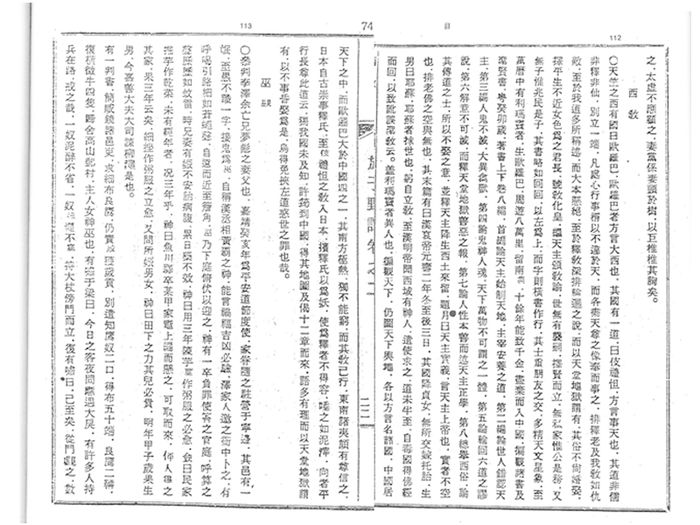(Translation) 伎利檀
| Primary Source | ||
|---|---|---|
 |
Title | |
| English | ||
| Chinese | ||
| Korean(RR) | ||
| Text Details | ||
| Genre | ||
| Type | ||
| Author(s) | ||
| Year | ||
| Source | ||
| Key Concepts | ||
| Translation Info | ||
| Translator(s) | Participants of 2018 Hanmun Summer Workshop (Intermediate Training Group) | |
| Editor(s) | ||
| Year | 2018 | |
Original Script
Translation
Student Translation : Jelena Gledić
West of India, there is Yulopa. Yulopa means the Far West[1] in the local language. This country has a practice called Kiridan, which means to serve heaven in the local language. This practice is not Confucianism, it is not Buddhism, and it is not Daoism. It is separately established on a different base. In general, they govern their minds and handle matters without disobeying heaven, and the various countries’ different images depicting God are respected and served. Lao Zi, Buddhism, and our teaching[2] are expelled as enemies. Regarding what is mostly conveyed in our practice, the core is greatly different. As for Buddhism, they deeply oppose the concept of transmigration and consider there is a heaven and a hell. Their customs do not value marriage and they choose one who has never been close to women’s charms in his life and make him their leader, called the emperor of edification. Conveying God, they spread their teaching and edify the world. There is no hereditary succession, they choose the wise and ordain them. They have no personal families, only the public is their responsibility. Also, they have no sons, only the people are their children. Their books are like those of the Hui people[3], the left is the beginning and the rule is to write horizontally. Their scholars lay emphasis on friendly relations. They are knowledgeable about celestial patterns. “Ŏu yadam”
- Discussion Questions:
+ I was not sure about transcribing the Chinese characters into Korean (Yulopa)
(Petra) 歐羅巴 is read like 구라파, so in M.-R. romanization it's Kurap'a (for the Korean romanization I like this http://roman.cs.pusan.ac.kr/input_eng.aspx page)
+ In the text we have 天尊 and 天主 which can both be seen as God or spirit or the main holy entity of the doctrine, so I am not too happy using the same word in English to translate them (and I don't know if it is even correct), and I also want to avoid overly lengthy footnotes (although they might be necessary for this kind of text); also, if there was no concept of God before Christianity in Korea, is it appropriate to translate it using that word?
(YO) 天尊 was used by Daoists and Buddhists in the sense of heavenly deity, and some translated "Celestial Worthy (or Worthies)". As for 天主, which was coined by Jesuit missionaries and used in Matteo Ricci's (利瑪竇) Tianzhu shiyi 天主實義, may be translated literally as "Lord of Heaven". I am not sure if we can say there was no concept of God (or god) before Christianity. The notion of god, deity, or divine being was there, which was extended to idea of Christian God.
+ I intentionally translated 我 as plural (Our) because I assumed the author is describing this strange practice to his own people
(Petra) I like the 我 as 'our' in this text, it suits it better than just 'my'.
+ Similar to the question of God, I was not sure if 教化皇 can maybe be translated as Pope, since this was a foreign concept, or is it better to translate it by description?